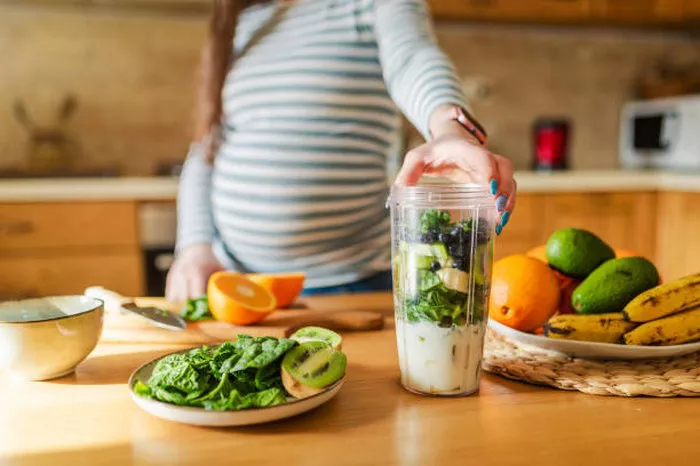Miscarriage is a heartbreaking reality for many expecting parents, and understanding the various factors that can contribute to this outcome is crucial for those who are pregnant or planning to conceive. While many lifestyle choices can impact pregnancy health, there is often confusion regarding the role of specific beverages and their potential effects on miscarriage risk. This article will explore the drinks that are commonly discussed in relation to miscarriage, the scientific evidence surrounding them, and recommendations for maintaining a healthy pregnancy.
Understanding Miscarriage
A miscarriage, defined as the loss of a pregnancy before the 20th week, occurs in approximately 10-20% of known pregnancies. While the exact cause of miscarriage can vary widely, it often involves chromosomal abnormalities in the fetus, hormonal imbalances, uterine abnormalities, or issues with the placenta. Lifestyle factors, including nutrition, substance use, and environmental exposures, can also play a role.
Drinks That May Affect Pregnancy
Alcohol
Alcohol consumption during pregnancy is one of the most well-documented factors associated with miscarriage. Studies have shown that even moderate drinking can increase the risk of miscarriage. The Centers for Disease Control and Prevention (CDC) and other health organizations recommend that pregnant women abstain from alcohol entirely.
Mechanism: Alcohol can interfere with fetal development and placental function, leading to complications. It can also affect hormone levels that are crucial for maintaining pregnancy.
Recommendations: It is safest to avoid all alcoholic beverages during pregnancy to minimize risks.
Caffeine
Caffeine, found in coffee, tea, energy drinks, and some sodas, is another beverage that raises questions regarding its safety during pregnancy.
Research Findings: Some studies suggest that high caffeine intake (more than 200 mg per day, roughly equivalent to one 12-ounce cup of coffee) may be associated with an increased risk of miscarriage. However, other studies have shown no significant link between moderate caffeine consumption and miscarriage risk.
Recommendations: Most health authorities recommend limiting caffeine intake during pregnancy to about 200 mg per day. Pregnant women should consider reducing their consumption of caffeinated beverages and opting for decaffeinated versions when possible.
Sugary Drinks
While there is no direct evidence linking sugary drinks to miscarriage, excessive consumption of sugar-sweetened beverages can contribute to other health issues that may affect pregnancy outcomes.
Potential Risks: High sugar intake is associated with gestational diabetes, obesity, and other metabolic issues, which can increase the risk of complications during pregnancy, including miscarriage.
Recommendations: Pregnant women should limit their intake of sugary drinks, opting instead for water, herbal teas, or naturally flavored water.
Herbal Teas and Infusions
Many herbal teas are considered safe during pregnancy; however, some herbal infusions can pose risks.
Potentially Harmful Herbs: Certain herbs, such as sage, rosemary, and ginseng, may have uterine-stimulating properties that could lead to complications, including miscarriage. Other herbs, like pennyroyal and blue cohosh, are known to be particularly dangerous and should be avoided completely.
Recommendations: Always consult a healthcare provider before consuming herbal teas or supplements during pregnancy. Stick to well-researched options like ginger or peppermint, which are generally considered safe.
Unpasteurized Juices and Dairy
Unpasteurized beverages can pose a risk of foodborne illnesses, which can lead to complications during pregnancy.
Risks: Consuming unpasteurized juices or dairy products can expose pregnant women to pathogens such as Listeria, which can cause severe complications, including miscarriage.
Recommendations: Always choose pasteurized products to reduce the risk of foodborne illness during pregnancy.
Energy Drinks
Energy drinks often contain high levels of caffeine, sugar, and other stimulants, which can be harmful during pregnancy.
Potential Risks: The high caffeine content can increase the risk of miscarriage and other complications. Additionally, the excessive sugar and stimulants can contribute to dehydration and increased heart rate.
Recommendations: Pregnant women should avoid energy drinks and opt for healthier sources of energy, such as balanced meals and hydration.
General Recommendations for Healthy Hydration During Pregnancy
Maintaining proper hydration is essential for a healthy pregnancy. Here are some general guidelines for what to drink:
Water: The best choice for hydration. Aim for at least 8-10 glasses a day, adjusting based on activity level and climate.
Milk: Provides essential nutrients, including calcium and vitamin D. Choose low-fat or non-fat options if preferred.
Herbal Teas: Stick to safe options, such as ginger or peppermint, and avoid those known to pose risks.
Fresh Fruit Juices: Opt for 100% pasteurized fruit juices without added sugars, and consume in moderation.
Broths and Soups: These can help with hydration and provide nutrients, especially if they are homemade and low in sodium.
When to Seek Medical Advice
If you have concerns about your diet and beverage choices during pregnancy, it is essential to consult a healthcare provider. They can provide personalized recommendations based on your health history and pregnancy status. Additionally, if you experience any unusual symptoms, such as heavy bleeding or severe abdominal pain, seek medical attention immediately.
Conclusion
While the risk of miscarriage is influenced by various factors, certain drinks can contribute to this risk. Alcohol and high caffeine intake are two of the most significant concerns for pregnant women. Additionally, unpasteurized beverages, sugary drinks, and certain herbal teas may pose risks that should be carefully considered. Maintaining a healthy diet and hydration plan is crucial for supporting a healthy pregnancy. Always consult with healthcare professionals regarding beverage choices and dietary practices to ensure the best outcomes for both mother and baby. By making informed choices and prioritizing health, expectant mothers can help create a supportive environment for their growing child.
Related Topics:
- What Causes Hidden Pregnancies?
- What Causes Ectopic Pregnancy?
- When Did You Get Your Period After Miscarriage?

